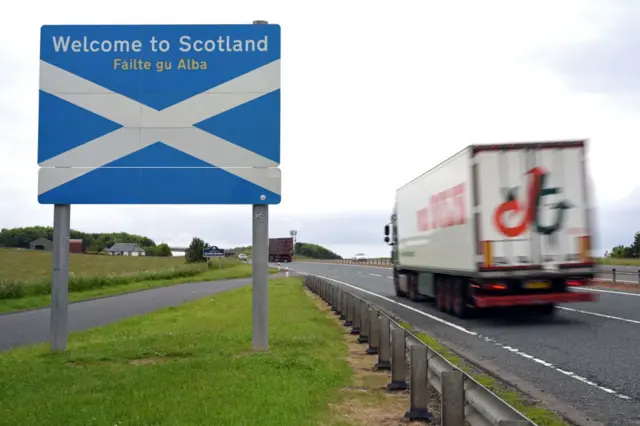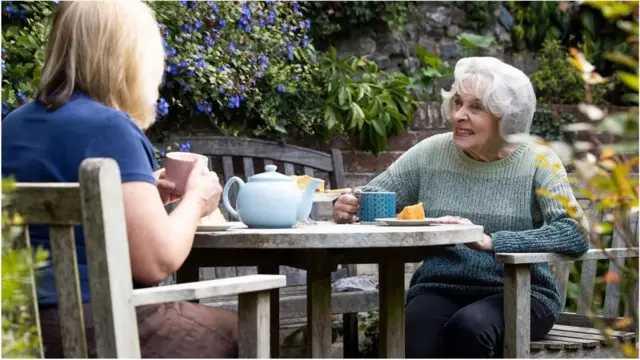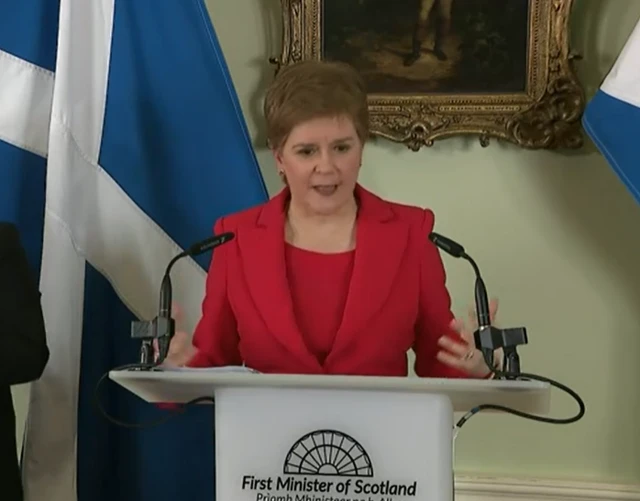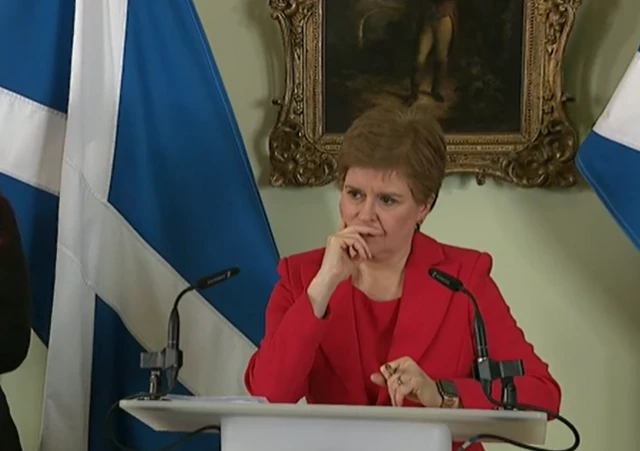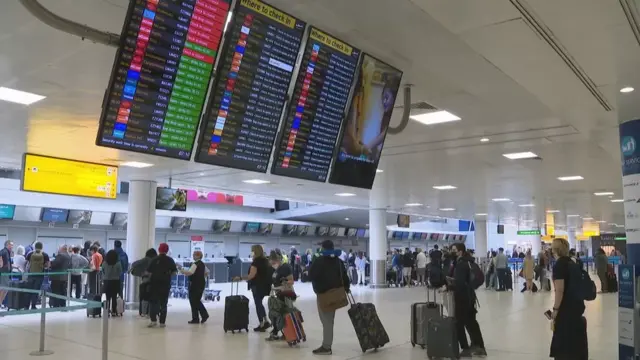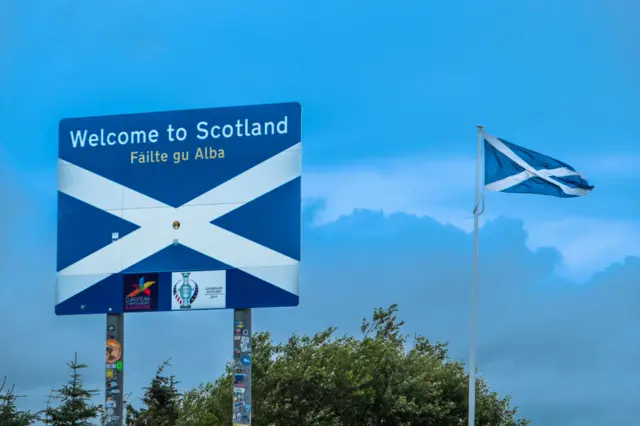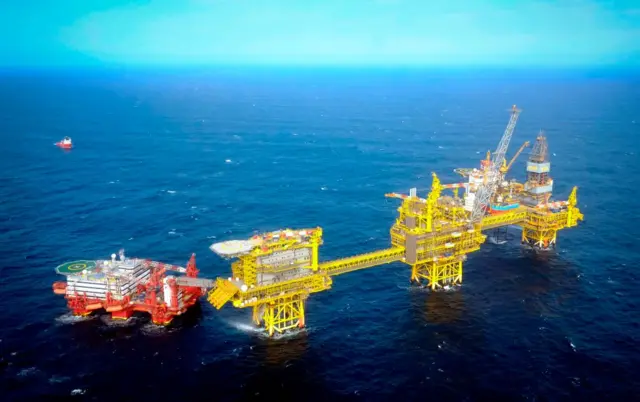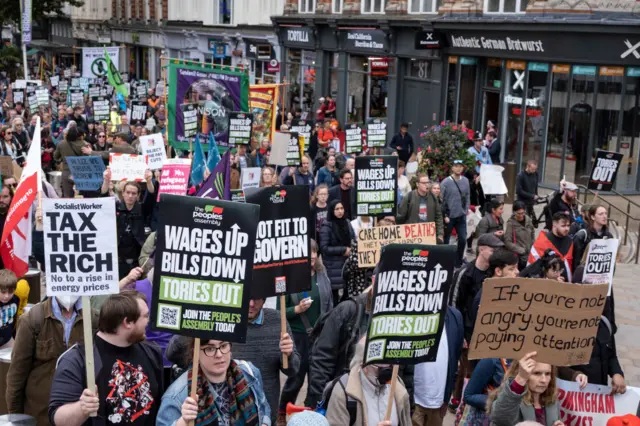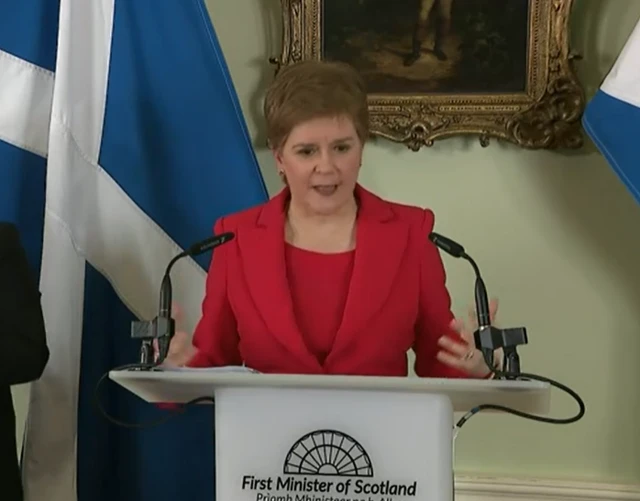Building a New Scotland: The key pointspublished at 13:47 BST 17 October 2022
Nicola Sturgeon has unveiled a paper outlining the economic argument for Scotland leaving the UK. Here are some of the key points she raised:
- Scotland would continue to use the pound before moving to a new currency "when the time is right" and look to join the European Union
- Independence offers an optimistic alternative away from what she called the failing UK economic model
- The FM insisted an independent Scotland would have a stronger and fairer economy
- It would have a redesigned energy market which would aim to provide secure and reliable low-cost energy
- Using remaining oil revenues and borrowing powers to create a £20bn major infrastructure investment created through the Building a New Scotland Fund
- Scottish independence would also open the door to Scotland joining the EU
- It would free movement of people, without a passport, across the UK and Ireland, with trade borders implemented smoothly
- Border arrangements would be required for trade of goods and services across the UK, but this is "not insurmountable"
- She explained "proper planning" would be required to get technology in place so as ''not to disrupt trade"
- However, the FM said it was "nonsense" to suggest people north of the border would need a passport to travel to England
That's all from the live page team today. Thanks for joining us.


